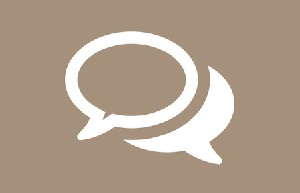- Home - News
- TWI News | TV
- Polls
- Year In Review
- News Archive
- Crime & Punishment
- Politics
- Regional
- Editorial
- Health
- Ghanaians Abroad
- Tabloid
- Africa
- Religion
- Election 2020
- Coronavirus
- News Videos | TV
- Photo Archives
- News Headlines
- Press Release
Opinions of Monday, 28 September 2015
Columnist: Mohammed Nurudeen Issahaq
Social Justice Judiciary of Justice, the Cedi & the Rule of Law
The Judiciary is a sacrosanct organ of state and one of the fundamental support pillars of every democratic society. An independent, well-functioning and efficient judiciary is an essential requirement for the consistent, fair and impartial administration of justice.
In all matters brought before it, the judiciary is expected to handle them impartially, on the basis of facts and in accordance with the law, without any restrictions, improper influences, inducements, pressures, threats or interferences, direct or indirect, from any quarter or for any reason.
If a judge should be capable of making just decisions without fear or favour, and not be subject to the whims of the powerful, then the judge has to command a moral standing that is above reproach. Judicial Independence is, therefore, an indispensable element of the right to due process, the rule of law and true democracy.
A stable, orderly and free society is derived from the people’s confidence in the fairness and objectivity of the justice system. The citizenry must have confidence in the judges’ impartiality, and their ability to apply the law according to the merits of the case rather than being swayed by any form of influence.
These lofty ideals/expectations notwithstanding, people’s experiences in our courts are often far from fair, but rather replete with countless instances of double standards. The privileged commit illegal acts and get away on account of their wealth or power, whereas the people at the bottom of the ladder commit small wrongs and are punished hugely. The nation’s prisons are filled with unknowns who have been incarcerated for the theft of a bunch of plantain or cassava.
On this point the famous English writer, William Shakespeare in his work King Lear (Act 4, scene 6) philosophised: “Plate sin with gold, and the strong lance of justice hurtless breaks; arm it in rags, a pygmy's straw does pierce it."
The drama that is currently playing out in our country is not very different from what Shakespeare captured vividly more than a hundred years ago.
Although a matter of perception until Anas’s recent expose, corruption in the Judiciary was an open secret; the Anas leak only provided a damning confirmation of what had been on everyone’s mind all along.
Indeed, the issue of corruption in Ghanaian society as a whole is hardly a surprise, as Ghana occupied the 61st position on the 2014 Corruption Perception Index, a leading global indicator of public sector corruption published biannually by Transparency International.
As a matter of fact, the kind of Judiciary a particular society has is not only a reflection but most often the by-product of that society. Ours is a society that glorifies wealth and materialism regardless of however it was obtained – to the extent that hardwork, and honesty are fast becoming a laughable trait.
Corruption permeates all sectors of our society whether we admit or not. That is the harsh reality, and we don’t have to go far to ascertain it. All we need to do is take a peek at the acquisition of drivers’ licences, roadworthy certificates, passports and birth certificates, not to mention the transactions that go on between drivers and police personnel on our roads.
It has to be conceded, for the sake of fairness, that it takes two willing parties for bribery and corruption to occur. Therefore even as we blame the cat for stealing a piece of fish, we ought to equally reprimand the fish for smelling too strong to attract the cat in the first place. The acknowledgement of this fact would enable us as a nation to see the bigger picture and to deal with this canker holistically, rather than engage in a one-sided approach.
Any successful anti-corruption crusade has to be a massive one and must involve every facet of the society – government workers, the private sector, in the schools, churches/mosques, at the marketplace, in the prisons and just everywhere. It must aim at creating a national consciousness that would ingrain the habit of doing the right thing in the DNA of the citizenry, coupled with the swift enforcement of the law without fear or favour – plus meting out stiff penalties to enforcers who breach the public trust to serve as deterrent.
Presently, the Economic and Organised Crimes Office (EOCO), Commission on Human Rights and Administrative Justice (CHRAJ), Bureau of National Investigations (BNI), the Police Service and other security establishments have been mandated by the State to check corruption. It is high time the government did what it takes to let these anti-corruption bodies to function effectively to redeem Ghana’s image.
As to what should be done about the nation’s justice system, Anas’s recent expose provides a good opportunity and a convenient starting point for the authorities to cleanse the Judiciary, an opportunity the government cannot afford to miss.
“To be judge over your fellow man is to stand in the place of God on earth. It is a grave responsibility. This is because God Himself is the ultimate judge. To abuse this trust is a most heinous crime." The perspectives of Professor Aaron Mike Oquaye, providing an end-note to this piece.











